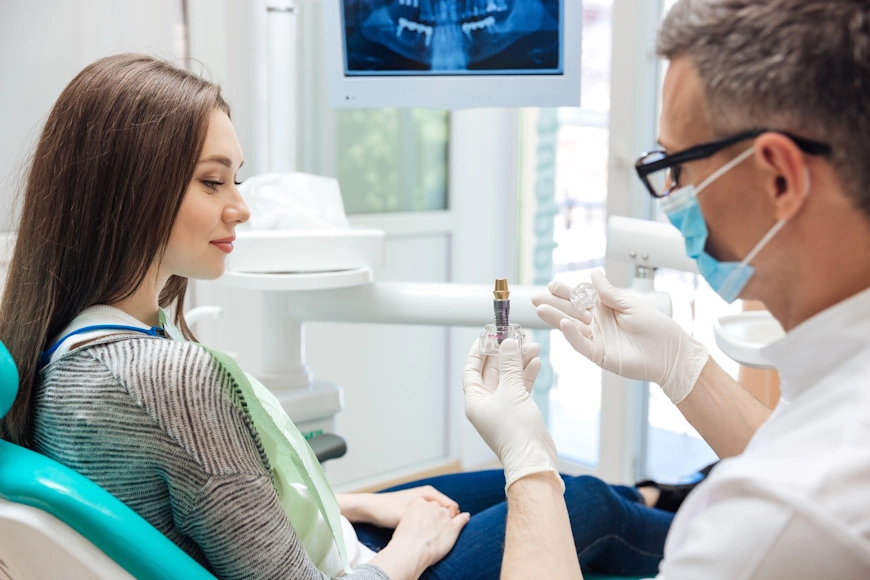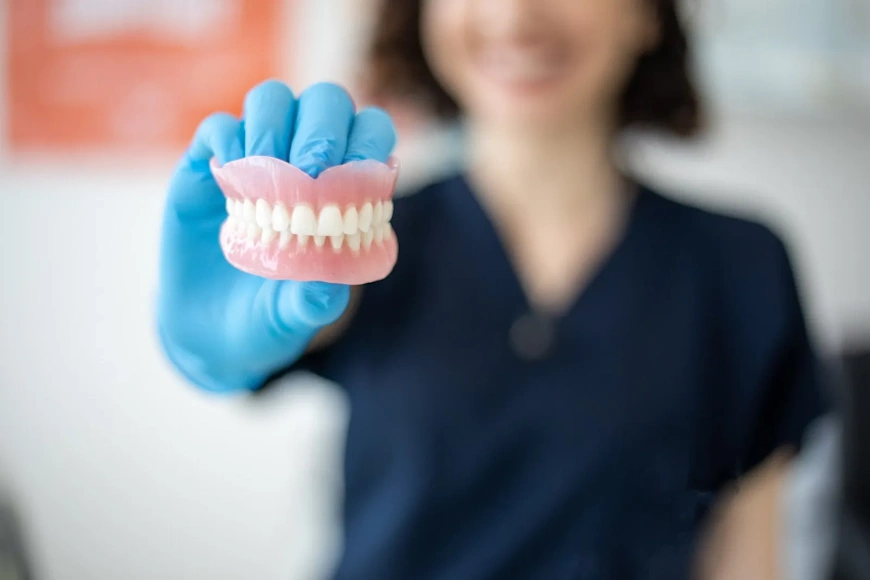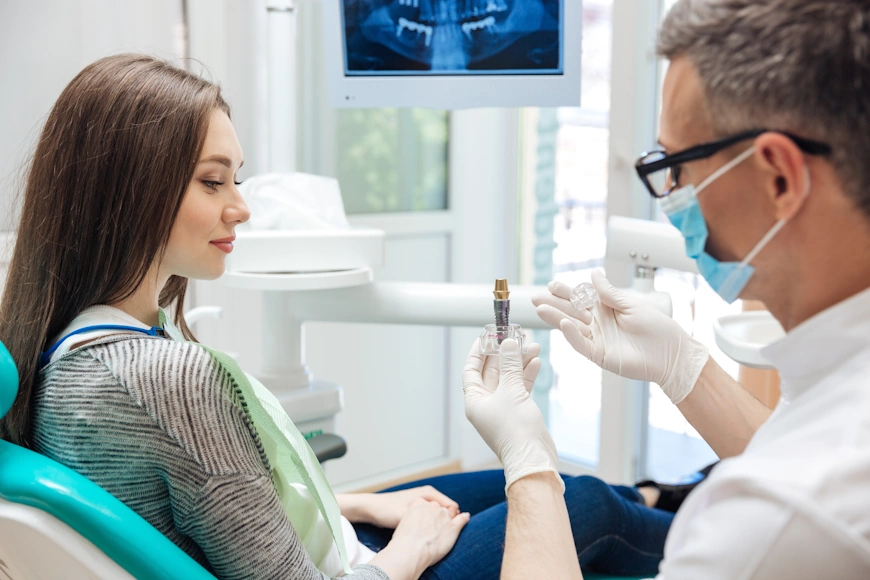
Choosing Between Dental Implants and Dentures: What's the Right Option for You?
Table Of Contents
Tooth loss is an increasingly prevalent issue that goes beyond merely missing teeth. It can have far-reaching implications on both your dental health and self-confidence. A gap in your teeth can affect speech, eating abilities, facial aesthetics, and even alter the structure of your jaw due to shifting gum lines.
Dental Implants
Dental implants serve as a durable alternative to natural teeth. These implants are constructed from titanium and are permanently affixed to the jawbone. This creates a seamless structural and functional connection between the implant and your jawbone. An additional component, known as an anchor, is integrated into the design to secure the synthetic tooth. Implants not only resemble natural teeth but also help maintain the structure of your jaw and facial appearance.
Pros of Dental Implants
- Stable and secure, eliminating worries about implant movement
- A long-lasting, low-maintenance option
- They mimic the appearance and feel of natural teeth
- Helps in preventing bone and gum decay
Cons of Dental Implants
- High costs associated
- Requires a surgical procedure, and sometimes bone grafts may be necessary
Dentures
Dentures are a more traditional approach, offering removable or fixed false teeth that are attached to your gums with sealants. Partial dentures are available for those missing only a few teeth and can either be removable or fixed. A metal framework supports the removable option, while natural teeth stabilize the fixed version.
Pros of Dentures
- Relatively affordable and a less complicated procedure
- Applicable for individuals with weaker gums who can’t opt for implants
Cons of Dentures
- Less stable, potentially leading to movement and slippage
- May cause difficulties in eating and speaking
- Possible discomfort, soreness, and irritation
- Regular replacements are needed, as advised by your dentist
- Lack of bone protection, potentially leading to further dental issues
Related Posts

Exploring the Variety of Denture Materials
A cosmetic dentist is your go-to professional for rectifying minor smile imperfections, utilizing a range of treatment procedures tailored to enhance your smile’s aesthetics. By understanding the variety of options available, and how these processes work, you can make a more informed decision about your cosmetic treatment.

Fluoride in Drinking Water: Understanding the Dental Benefits and Potential Health Concerns
Fluoride is a natural substance found in the earth’s crust, and it’s often added to community water sources to help prevent tooth decay. Dentists also apply fluoride to teeth during dental services like routine checkups. While fluoride offers several benefits, it also has potential disadvantages.

Dental Implants: A Solution for Missing Teeth
If you’re dealing with tooth decay, a missing or broken tooth, or dental injuries, getting a dental implant could be the perfect option for you.